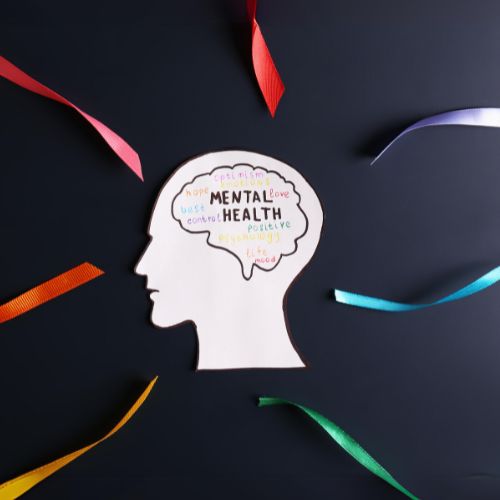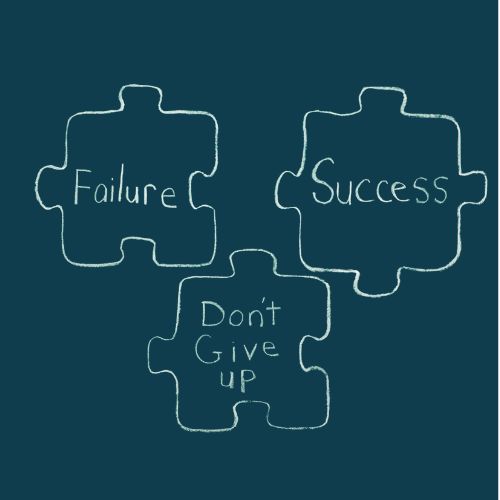
Mental Health Matters: Reducing Stress and Anxiety for a Calmer, Happier Yo
Life can be overwhelming sometimes, right? With the endless to-do lists, daily challenges, and unexpected hurdles, it’s no wonder that stress and anxiety have become such common companions in our lives. But here’s the good news—you have the power to reduce stress and anxiety, and take control of your mental well-being. Let’s dive into some effective strategies to help you live a calmer, more balanced life, because mental health truly matters.
1. Understanding Stress and Anxiety: What’s Going On?
Before we can reduce stress and anxiety, we need to understand what’s happening in our minds and bodies. Stress is a natural response to challenging situations. It’s your body’s way of telling you that something requires attention. Anxiety, on the other hand, is a feeling of worry or fear that can sometimes spiral out of control.
The problem isn’t stress or anxiety itself—it’s when they become chronic or overwhelming. When left unchecked, they can wreak havoc on your physical and mental health. But by learning to manage them effectively, you can reclaim your peace of mind.
2. The Power of Mindfulness: Staying Present in the Moment
Mindfulness is one of the most powerful tools in reducing stress and anxiety. At its core, mindfulness is about being fully present in the moment, without judgment. It sounds simple, but it can have a profound impact on your mental health.
When you practice mindfulness, you’re training your brain to focus on what’s happening right now instead of worrying about the future or dwelling on the past. This practice has been shown to reduce symptoms of anxiety and increase feelings of calm and relaxation. Whether through meditation, deep breathing, or mindful walking, incorporating mindfulness into your daily routine can help you stay grounded and in control.
3. Exercise for Mental Health: Move Your Body, Calm Your Mind
We often think of exercise as something we do for our physical health, but did you know it’s also a game-changer for mental health? Physical activity triggers the release of endorphins, the body’s natural mood boosters. Regular exercise can reduce feelings of stress, anxiety, and even depression.
You don’t have to become a gym rat to reap the benefits—find an activity you enjoy, whether it’s yoga, swimming, dancing, or even walking. The key is consistency. Moving your body on a regular basis will help you feel calmer and more balanced.
4. Sleep: The Unsung Hero of Mental Well-Being
Never underestimate the power of a good night’s sleep! Poor sleep can intensify feelings of stress and anxiety, while regular, quality sleep is one of the most effective ways to maintain mental health. When you’re well-rested, you’re better equipped to handle life’s challenges and maintain emotional stability.
To improve your sleep, establish a bedtime routine, avoid caffeine late in the day, and make your bedroom a peaceful sanctuary. Your mind will be clearer, your mood more stable, and your ability to manage stress much stronger.
5. Healthy Eating, Healthy Mind: Food for Thought
What you eat directly impacts how you feel. A diet rich in whole foods—fruits, vegetables, lean proteins, and healthy fats—can have a huge positive effect on your mental health. Studies have shown that certain foods, like those rich in omega-3 fatty acids (found in fish, nuts, and seeds), can reduce anxiety and promote brain health.
On the flip side, processed foods, sugary snacks, and excessive caffeine can exacerbate stress and anxiety. By nourishing your body with the right foods, you’re also nourishing your mind. So, next time you’re feeling overwhelmed, consider reaching for a healthy snack instead of comfort food.
6. Connect with Others: The Healing Power of Relationships
Humans are social beings, and meaningful connections with others are essential to our well-being. Spending time with friends, family, or even pets can significantly reduce feelings of stress and anxiety. Sometimes, just talking things out with someone who cares can help you gain perspective and feel supported.
Don’t be afraid to reach out when you’re feeling overwhelmed—whether it’s to a close friend, a support group, or a therapist. You don’t have to go through life’s challenges alone. Building a strong support system is one of the best defenses against anxiety and stress.
7. Time Management: Taking Back Control
One of the biggest causes of stress is feeling like there’s not enough time to get everything done. Learning to manage your time effectively can reduce that sense of overwhelm and give you back control over your day. Try breaking tasks into smaller, manageable chunks, prioritizing what truly matters, and allowing yourself breaks to recharge.
By creating a balance between work, rest, and play, you’ll not only reduce stress but also become more productive in the long run. Remember, it’s okay to say no sometimes—it’s about managing your time in a way that supports your mental health.
8. Unplug to Recharge: Disconnecting to Reconnect with Yourself
Technology has made our lives more convenient, but it’s also a significant source of stress. The constant bombardment of notifications, emails, and social media can leave us feeling anxious and overstimulated. Sometimes, the best thing you can do for your mental health is to unplug.
Try setting aside specific times during the day when you disconnect from your devices. Use that time to relax, read, take a walk, or engage in a hobby you enjoy. By creating a healthier relationship with technology, you’ll free up mental space and reduce feelings of stress.
9. Seek Professional Help: You Don’t Have to Do It Alone
Sometimes, stress and anxiety can become too much to handle on your own, and that’s okay. Seeking professional help from a therapist or counselor is a brave and proactive step toward better mental health. Therapy provides you with tools and strategies to cope with life’s challenges, and talking to a professional can offer new perspectives on how to manage stress and anxiety effectively.
Remember, there’s no shame in asking for help. Your mental health is just as important as your physical health, and taking action to protect it is one of the best things you can do for yourself.






